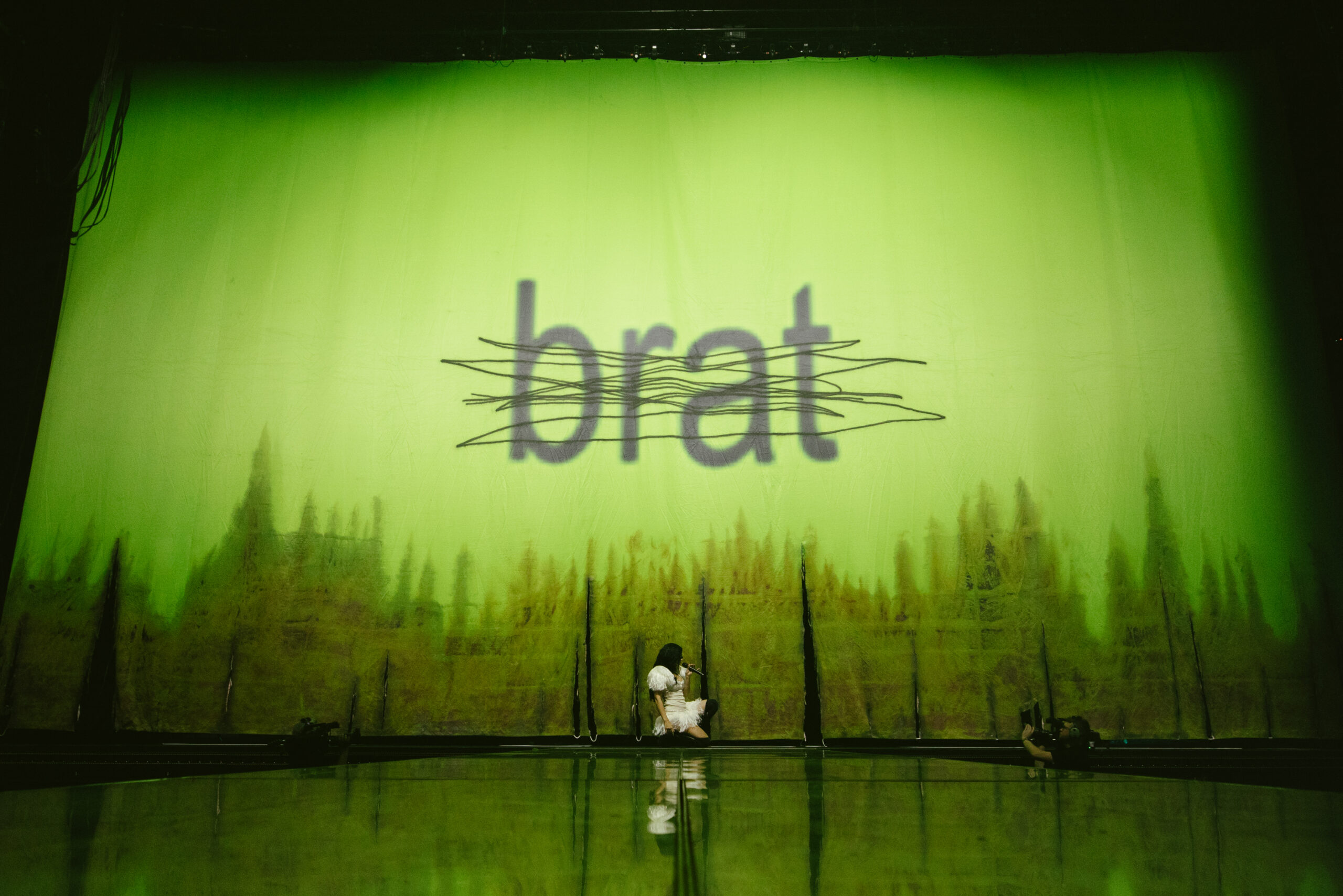She was a bold flash of color in a cold Cambridge winter — and he couldn’t look away. Tune into the Love under the Arch podcast, where we share Northwestern’s most heartbreaking, touching and sweetest love stories. Our first episode looks at Professors Robert Orsi and Christine Helmer’s love story from Harvard to Northwestern.
Robert Orsi: I was walking home with a colleague one day and she went jogging by me and her outfit was so incredible. I mean Cambridge is a pretty stodgy place. It’s a pretty, you know, herringbone jacket — simple dress kind of place. And here went by, it was like seeing a tropical bird in Alaska or something. And I thought, “Whoa, What? What? Who is that?”
[MUSIC]
Indra Dalaisaikhan: This is Robert Orsi, a professor of religious studies at Northwestern. 23 years ago, he was teaching American religious history at Harvard Divinity School. And he was about to meet Christine Helmer, who is now a professor in the German and religious studies department at Northwestern. But at the time, she was a visiting professor at Harvard.
Orsi: And then this friend of mine, who was another professor, said, “Well, I can arrange, if you’d like, she’s at the Divinity School.” He said, “I could arrange a meeting if you’d like.” And then just a couple of days later, Christine arranged her own meeting with me.
Christine Helmer: Yes. Yes, I did. I had found out that you were a graduate of Yale University in religious studies, as I was also a graduate, and both of us had won sort of the eminent Field Prize for the humanities for our dissertations in our respective graduating years.
I had also heard from my colleagues that you were the president of the American Academy of Religion (AAR) that year, and that you had cut the Schleiermacher sessions from two to one at the AAR annual meeting.
Orsi: She’s a theologian, and I had the unfortunate reputation in the field of being anti-theology, which was not true. It wasn’t true at all, but it was how I was known. And so, as she was just saying, she’s an expert in the thought of a 19th century German theologian named Friedrich Schleiermacher. And not only is she an expert in his thought, she also has had a long crush on this theologian. She loves this theologian.
One of the first things I did when I became president of the American Academy of Religion, I was looking at, you know, all these different sessions that they had — all these different groups. And I noticed that the Schleiermacher group would get two sessions every year at the annual meeting, whereas the Hinduism group only got one session, for example, and I thought, “Wait, here’s like, tens of millions of people who are Hindus, and then there’s Schleiermacher. Something’s wrong here.” So I killed one of the Schleiermacher groups. I x-ed one of the Schleiermacher groups. And that was probably the worst thing I could possibly have done in Christine’s mind.
Helmer: Well, and in the minds of all my colleagues who were not at all happy with having Schleiermacher sessions reduced. I mean, Schleiermacher is a wonderfully generative topic, and there’s always room to discover more and interesting aspects of his thought. So our first meeting was — Robert and I had to figure out our respective stances on Schleiermacher. So our friendship took off from there.
[MUSIC]
Orsi: I had an apartment, and Christine started coming over. I also had a dog, a very difficult dog I have to say. He had a bit of a challenging personality, and he seemed to take to Christine too when she came over to visit.
She really loved herbal tea, so I laid in a stock of herbal teas in my apartment. And she also liked hard salami, so I laid in a stock of hard salami. I mean, part of it was I really know how difficult the life of a visiting professor is at a university. I mean, it’s kind of lonely. They’re all by themselves. They’re there for a year, and very often universities invite a professor to come for a year, and then sort of forget about them. And so, you know, my heart kind of went out to her.
Helmer: And the fact that you had a couch and a TV. That couch was a favorite place where I watched — I think we also watched the funeral mass of Pope John Paul II on that couch.
Orsi: Oh wow, yeah.
[MUSIC FADES OFF]
Dalaisaikhan: After a romantic date in the Boston aquarium, Orsi and Helmer soon became much more than friends. But that fall, Orsi’s mother passed away, making the pair even closer in times of need.
Orsi: Christine was just a huge help and a comfort during that period, she came with me to Yonkers. And she came down and actually met my mother just a few days before she died. Kind of the last — really the last weekend my mother was still coherent before she slipped into the coma that leads to death.
And so Christine was just a huge help in that time, and a huge comfort to me and to my daughter from another marriage that had ended, who was just really devastated by her grandma. So things, you know, tragically, sadly, the death, really, I suppose brought us closer faster than maybe gotten, you know, on another timeline.
[MUSIC]
Dalaisaikhan: Orsi and Helmer welcomed their son, Anthony, and soon after, they tied the knot in 2005.
Orsi: My mother had a very long association with Fordham University. She was a secretary there, or an office administrator as she was later called, for 45 years, and she was a beloved figure on campus. So really, as a favor to my mother, they let us get married in the University Chapel which is just a gorgeous place, and it was so sweet.
Here we were, we weren’t married yet — we were getting married, we had a baby. Not exactly your typical Catholic story, but I have to say very graciously, the Jesuits, the priests of the Society of Jesus, welcomed us to the church. We had a beautiful mass and it was just a beautiful ceremony.
Helmer: Both of us are scholars of religion, and so we had our son baptized, and then my long-time friend and mentor, Professor Marilyn McCord Adams, who was a philosopher and theologian. She gave the sermon and then another friend of mine, a Lutheran minister called Tim Seals, he also helped at the wedding service. So it was really an ecumenical… ecumenical worship. And ecumenical means sort of bringing two different religious traditions together in cooperation with each other.
[MUSIC FADES OFF]
Dalaisaikhan: There was just one problem: Harvard didn’t offer Helmer a faculty position.
Orsi: Northwestern announced that they had a new chair in Catholic studies, which is one of my fields. So I approached the chair of the department then — the religious studies department here — and I said I’d be very interested in this chair, but my wife and I really want to be at the same university together. She’s also a professor and we have a baby, and so part of the reason we’re moving is to you know… we want to be together. We want to raise our family together.
Northwestern was really gracious and generous. They immediately said, “Yes, we could totally find a place, we’re interested in both of you. You’re both distinguished scholars.” So we came and both of us had two separate interviews, and they hired both of us, which was just a great gift.
Dalaisaikhan: At Northwestern, Orsi and Helmer co-teach multiple seminars.
Helmer: Students love it when we co-teach because we actually model a scholarly discussion. We disagree, we figure out how we try to navigate each other’s different perspectives. I’m sort of much more kind of conceptual and philosophical, and Robert is more empirical and historical. So we complement each other, but there are always points at which we disagree, and I think modeling for students how to have a generative conversation between two scholars who respect each other deeply, but are also invested in sometimes different claims.
Orsi: Our son, Anthony, who now is in Vassar — he’s a sophomore at Vassar. He would probably have some things to say about this endless conversation about religion. Because not only is, you know, to have two parents in the same field coming at it from different perspectives, it’s a lot of religion talk.
Christine comes from a very musical family, and evidently, there are genes apparently that work this way, because our son is very musical, I’m not. Now, our son is a very gifted violist, that’s what he’s doing at Vassar. And that was great, I have to say, raising a child with Christine was just a lot of fun.
Helmer: Yeah, it went by so quickly. [LAUGHS]
Orsi: It did!
[MUSIC]
Dalaisaikhan: I asked the professor pair what their favorite things about each other were.
Helmer: Well, I love Robert’s sense of humor. It’s amazing, he always makes me laugh. And I must say, I am very spoiled, because he is the best cook.
Orsi: She also loves, of course, my deep intelligence and all of that. But I guess when push comes to shove, it’s really the cooking that really counts.
I think it was just that sense of color and that sense of joy, really that the color communicated that it stood out so much on a cold winter Cambridge afternoon.
Dalaisaikhan: Thank you for tuning in to Love under the Arch. In this podcast, you’ll find Northwestern’s most heartbreaking, touching and sweetest love stories… just like this one. I’m your host, Indra Dalaisaikhan and I hope to catch you in the next episode.
[MUSIC FADES OFF]
Music credits:
Tall Harvey by Blue Dot Sessions
Slimheart by Blue Dot Sessions
Lovers Hollow by Blue Dot Sessions
Greyleaf Willow by Blue Dot Sessions



